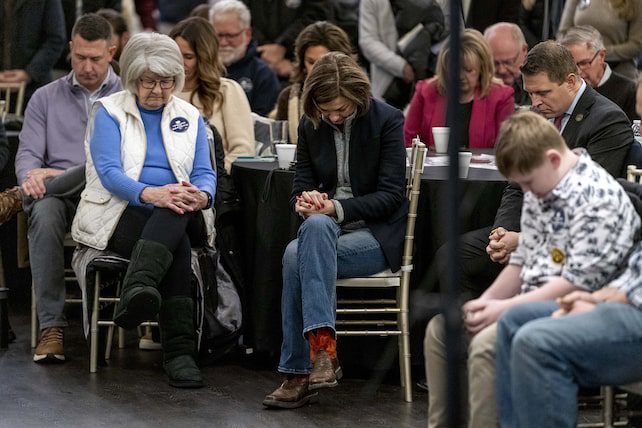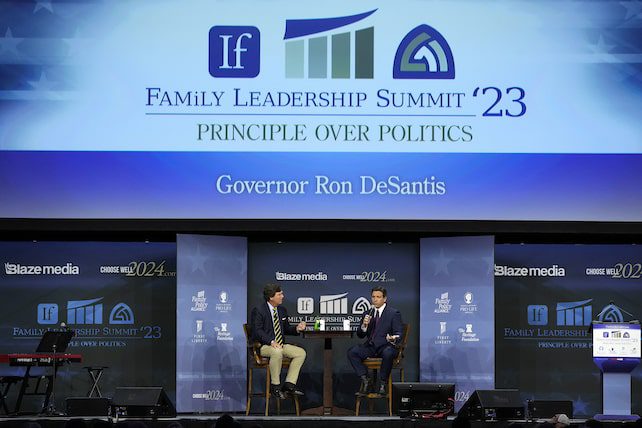(RNS) — The drive between Eastern Illinois University, where Ryan Burge teaches political science, and Mt. Vernon, Illinois, where he is pastor of a small Baptist church, takes a little more than an hour and a half. Given his two professions, Burge spends a lot of time while commuting across downstate Illinois’ flat, green expanse thinking about religion and elections.
Among the things Burge says he has learned: Faith for most people matters in the pews and, for some, in day-to-day life. But in the voting booth, politics is king.
“Partisanship is the strongest predictor of vote choice,” said Burge. “It was that way in the 1950s, and it’s that way today. Religion does not matter nearly as much as people think it does.”
As an example, Burge pointed out that when the 2024 presidential campaign season begins in earnest with the Iowa caucuses on Monday (Jan. 15), evangelical Christians are likely to be as faithful to the Republican Party as they have for the past few decades. But with evangelical leaders wielding less influence than they have in the past, their choices are going to be driven primarily by their identification as Republicans, not their faith connections.
Evangelical support in Iowa has played a key role in boosting past candidates, notably George W. Bush in 2000. But Bush was the last Republican launched by Iowa Republicans all the way to the White House. Mike Huckabee, the former Arkansas governor and Southern Baptist preacher, won in 2008. Rick Santorum, a conservative Catholic favored by evangelicals, won in 2012, as did Ted Cruz, son of an evangelical pastor. But Ron DeSantis, the candidate backed this year by the leader of a prominent evangelical group, is trailing badly in the polls.
Michael Wear, a former official in the Obama faith-based office and author of the forthcoming “The Spirit of Our Politics,” while past Republican presidential candidates would come to events seeking the approval of evangelical leaders, evangelicals are now seeking the approval of conservatives.
Wear pointed to a 2023 candidate forum hosted by The Family Leader, a prominent Christian group in the state. Rather than have an evangelical leader or pastor interview candidates at its Family Leadership Summit, organizers invited former Fox News host Tucker Carlson to play that role. “It shows evangelicals playing for conservative acceptance, as opposed to Republicans playing for evangelical acceptance,” Wear said.
Bob Vander Plaats, president of The Family Leader, long described as Iowa’s evangelical kingmaker for his role in backing Huckabee, Santorum and Cruz, is backing Ron DeSantis this year. The Florida governor trails Trump by more than 35 percentage points, according to FiveThirtyEight.
In a recent op-ed for the Des Moines Register, Vander Plaats argued that while Trump is a friend, his candidacy is doomed. “While Trump could very well win the primary, the system and the sheer number of Trump haters will never allow him to win the presidency,” he wrote. Iowans, evangelical or not, don’t seem to be convinced.
Evangelicals in Iowa and beyond may simply be seeing the downside of their alliance with the Republican Party. In the late 1990s, legendary religious right leaders Paul Weyrich, a co-founder of the Council for National Policy, Gary Bauer, then president of the Family Research Council, and Southern Baptist ethicist and activist Richard Land pushed Republican leaders to deliver on promises made to evangelicals when they came on board as the moral majority in the late 1970s.


